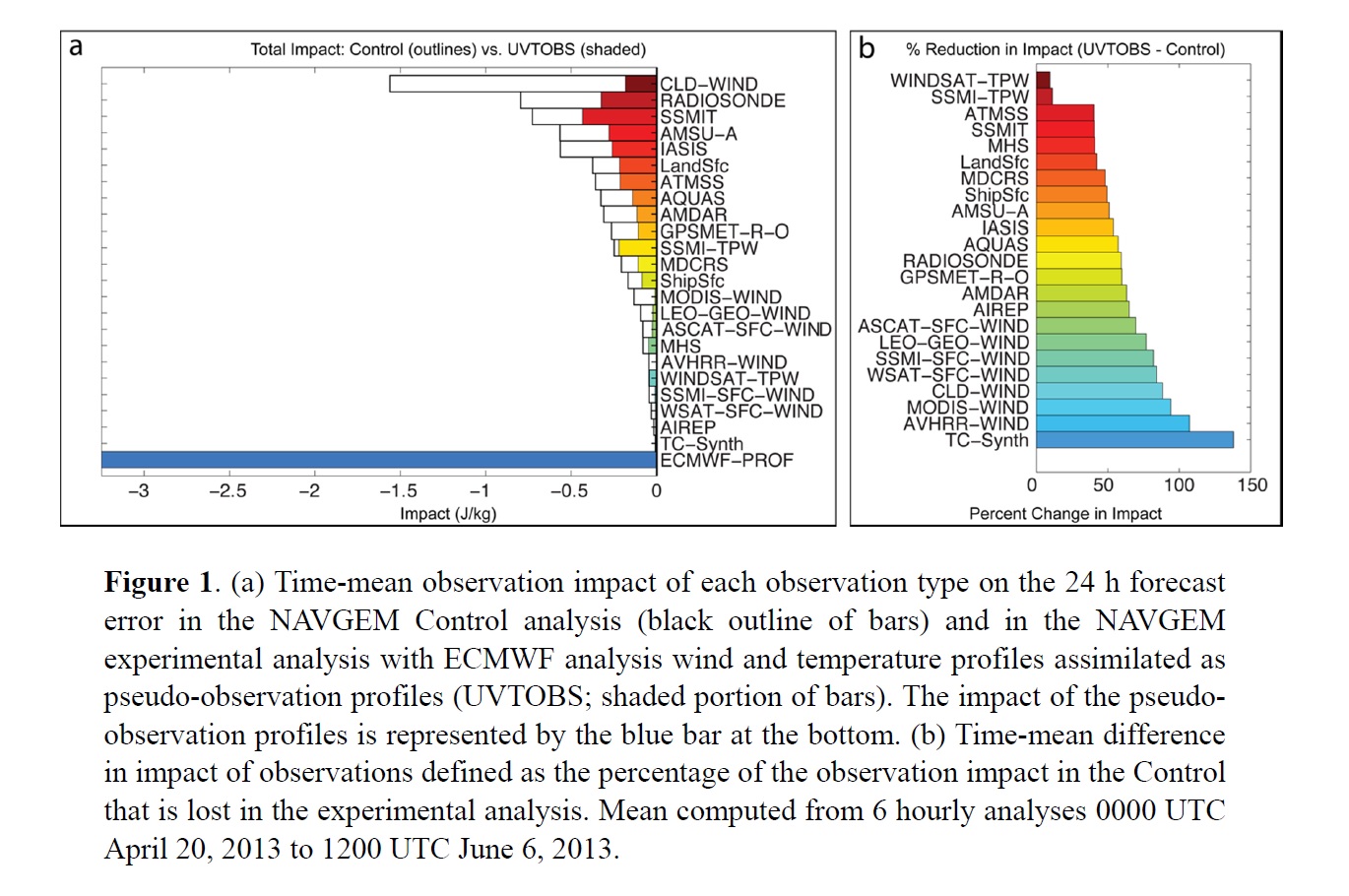Graphical Abstract
Hoover, B. T., and R. H. Langland, 2017: Forecast and observation impact experiments in the Navy Global Environmental Model with assimilation of ECWMF analysis data in the global domain. J. Meteor. Soc. Japan, 95, 369-389.
https://doi.org/10.2151/jmsj.2017-023
Graphical Abstract with highlights
Highlights:
- The impact of assimilating profiles of analysis winds and temperatures computed globally from the European Centre for Medium Range Weather Forecasts (ECMWF) Integrated Forecast System (IFS) into the analysis of the Navy Global Environmental Model (NAVGEM) on the 24 h forecast error is investigated by computing the adjoint-derived observation impact on a 24 h forecast (moist energy) error norm both with and without assimilating the pseudo-observation profiles.
- The NAVGEM analysis draws closer to the ECMWF analysis, with cooling of analysis temperatures and lowering of analysis 500 hPa geopotential heights globally, with the largest changes to the analysis occurring in the southern high latitudes. These changes represent a bias reduction in the NAVGEM analysis that translates to significant forecast improvement.
- The time-mean adjoint-derived observation impact of each analysis type demonstrates that ECMWF pseudo-observation profiles contribute more to reducing the 24 h forecast error than any other observation type, and all other observation types express lower impact than they do in the Control (Fig. 1). The total observation impact across all observation types is lower in the experimental NAVGEM than in the Control, which is an indicator of an improved analysis-forecast system.







